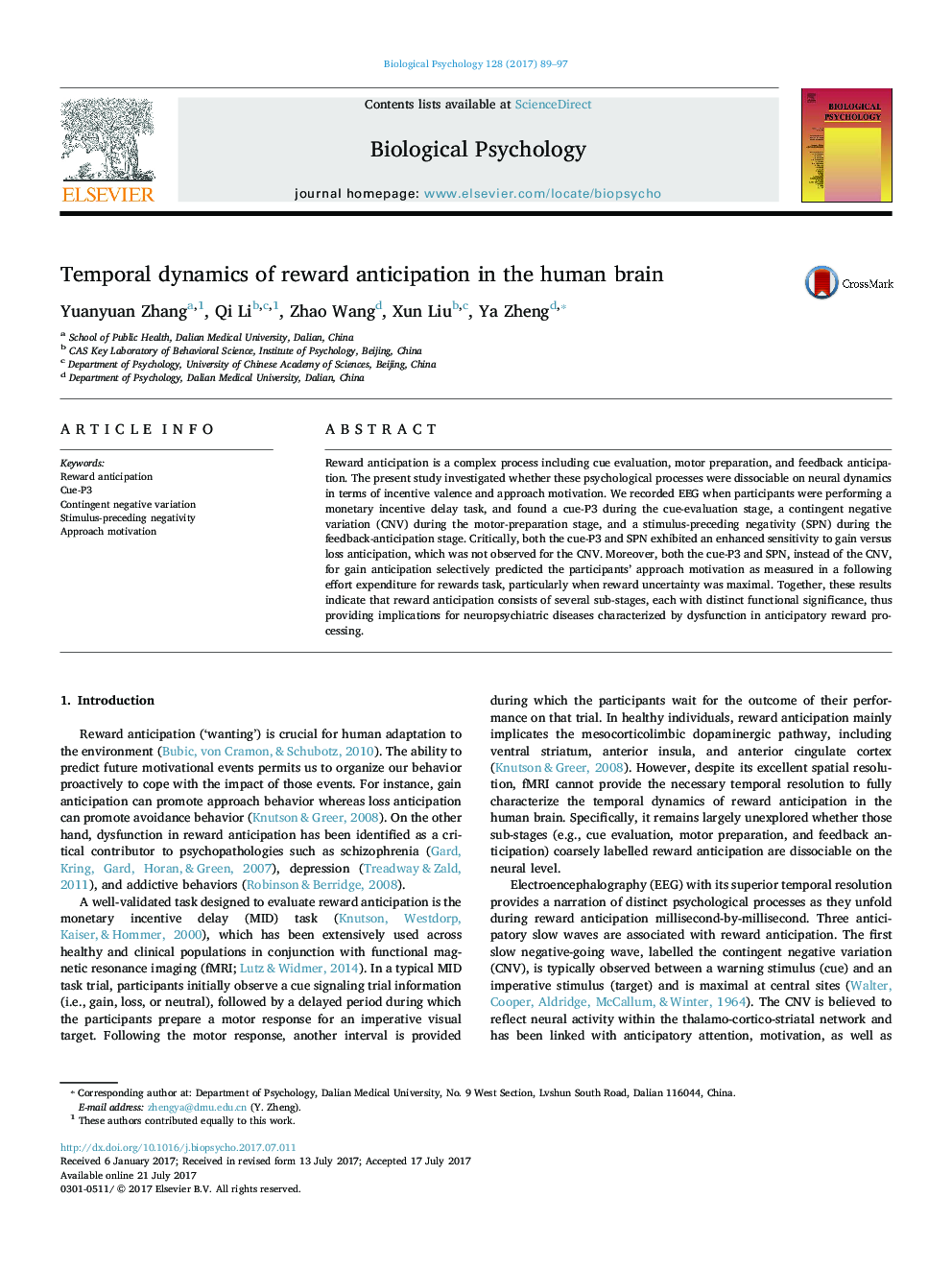| Article ID | Journal | Published Year | Pages | File Type |
|---|---|---|---|---|
| 5040384 | Biological Psychology | 2017 | 9 Pages |
â¢We investigated the neural dynamics of reward anticipation.â¢Participants completed an ERP task and a behavioral task.â¢The cue-P3 and SPN were more sensitive to gain vs. loss anticipation than the CNV.â¢The gain cue-P3 and SPN selectively predicted participants' approach motivation.â¢The prediction was strongest when reward uncertainty was maximal.
Reward anticipation is a complex process including cue evaluation, motor preparation, and feedback anticipation. The present study investigated whether these psychological processes were dissociable on neural dynamics in terms of incentive valence and approach motivation. We recorded EEG when participants were performing a monetary incentive delay task, and found a cue-P3 during the cue-evaluation stage, a contingent negative variation (CNV) during the motor-preparation stage, and a stimulus-preceding negativity (SPN) during the feedback-anticipation stage. Critically, both the cue-P3 and SPN exhibited an enhanced sensitivity to gain versus loss anticipation, which was not observed for the CNV. Moreover, both the cue-P3 and SPN, instead of the CNV, for gain anticipation selectively predicted the participants' approach motivation as measured in a following effort expenditure for rewards task, particularly when reward uncertainty was maximal. Together, these results indicate that reward anticipation consists of several sub-stages, each with distinct functional significance, thus providing implications for neuropsychiatric diseases characterized by dysfunction in anticipatory reward processing.
